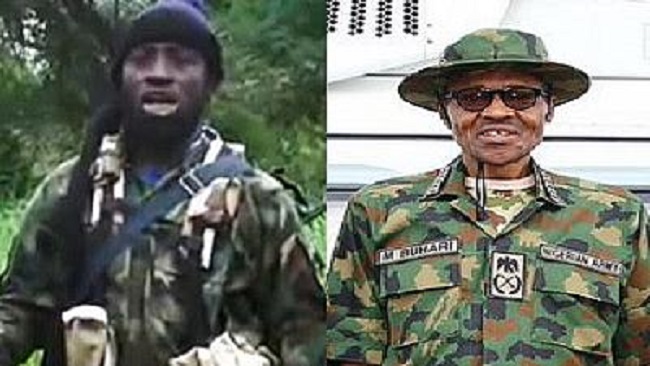The rise and reach of Boko Haram as it continues to kill and kidnap
On April 1, the Boko Haram attacked the villages of Bale-Shuwa and Alkaranti in Borno, northern Nigeria, killing more than a dozen people and injuring 83. Days later, on April 14, the United Nations International Children’s Fund said in a statement that the Nigerian terrorist group had kidnapped more than 1,000 children since 2013. The announcement came four years to the day when Boko Haram kidnapped 276 girls from a boarding school in the northeastern town of Chibok on April 14, 2014. More recently, on February 19 this year, it was reported that nearly 110 girls were missing following an attack by the group on a school in Dapchi, northeast Nigeria.
What has fuelled rise of the group, and how has it managed to remain relevant?
The beginning
The 2002 Miss World pageant was initially planned to be organised in the Nigerian capital city of Abuja, but the event was shifted to London due to security concerns arising out of religious tensions against the event. The BBC then reported that “many Nigerian Muslims were incensed that the event, already an affront to their conservative ideas about feminine modesty, would be held during the holy month of Ramadan”. In the ensuing violence, which subsequently came to be known as Miss World riots, more than 200 people were killed, with the streets of the northern city of Kaduna said to be “scattered with corpses”.
It was during this turbulent time that the Boko Haram was formed. Though many argue that the group may have existed since the 1990s, it was during the turbulent period in 2002 that radical Muslim cleric Mohammed Yusuf succeeded in consolidating splinter factions to form the Boko Haram.
Based mainly based in northeast Nigeria, the group is also active in the neighbouring countries of Chad, Niger and Cameroon. In the Hausa language that is commonly spoken in northeast Nigeria, Boko Haram means “Western education is forbidden”.
The group despises anything that may be considered Western, including the established norms of liberal democracy. As a consequence, it considers the Nigerian state an enemy, and wants an Islamic state governed by the Quranic principles and Shariat.
Rising notoriety
Although the Boko Haram frequently staged armed attacks and bombings since it came into being, it wasn’t until 2009 that the international community took notice of the outfit. In July that year, the Boko Haram carried out a spate of attacks on churches and government infrastructure and killed scores of policemen. Hundreds of civilians died in the clashes that followed between security forces and Boko Haram. More than 700 members of the terror outfit were killed too.
Yusuf, the outfit’s founder, was captured (and later allegedly executed), and his deputy, Abubakar Shekau, was reported to have been killed. But a year later, the group released a video statement, in which Shekau claimed to have taken up the reins of the outfit.
In 2014 alone, Boko Haram was responsible for 6,644 deaths, thereby overtaking the Islamic State, which reportedly killed 6,073 people during this period. The 2015 Global Terrorism Index report by the Institute for Economics and Peace, a global think tank headquartered in Sydney, ranked the Boko Haram as the “world’s deadliest terror group”.
Behind the rise
The rising menace of Boko Haram, commentators argue, is a result of the failure of the Nigerian state to improve social and economic conditions in the northern areas of the country, with successive governments investing heavily in the oil-rich, prosperous south. But such a discrimination has existed for more than a century. It began with the British colonisers who followed a peculiar governance structure — Indirect Rule — in Nigeria, similar to the one that existed since the time of the East India Company in the Indian subcontinent between the British Crown and the princely states.
In the early 20th century, British High Commissioner of the North Nigerian Protectorate, Frederick Lugard, allowed Muslim emirs to continue their rule in this part of the country. So while Western education flourished in the Christian-majority South, the North rejected attempts of the departing British and successive independent dispensations to introduce Universal Primary Education. The vast illiterate population in the North and the informal education system have long helped the Boko Haram propagate its ideology, and recruit youths in its ranks.
The fightback
Countries at the receiving end of Boko Haram’s terror — Nigeria, Chad, Cameroon, Niger and Benin — formed a Multinational Joint Task Force (MNJTF). The force, which has existed since 1994, was in April 2012 given an expanded mandate of taking on Boko Haram and Ansaru (another local Islamic jihadist group). The task force has succeeded in trimming the outfit’s influence, and restricting its activities to the northern state of Borno.
The present situation
Although international sanctions and military operations by the MNJTF have caused setbacks to the terror outfit, the menace is far from over. In 2015, in a bid to remain relevant, the group led by Shekau pledged allegiance to the ISIS. However, recent reports suggest a rift in the organisation. Within a year-and-a-half of its partnership with the IS, the latter has favoured Abu Musab al-Barnawi, the son of Boko Haram’s late founder Mohammed Yusuf, over Shekau.
Source: Indian Express





